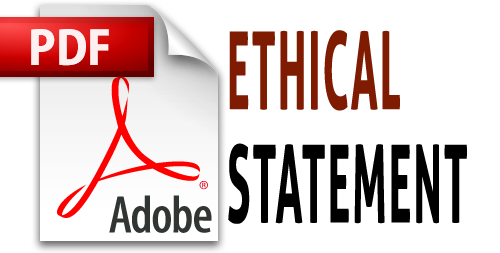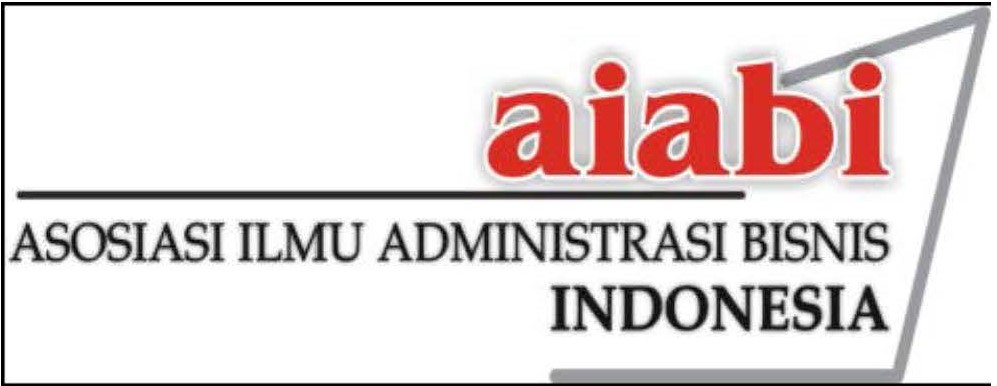PENGGUNAAN DESIGN THINKING PADA PERUSAHAAN KONSULTAN INDIE LABTEK BANDUNG
Abstrak
ABSTRACT
The complexity of business problems requires solution solving problems and is able to be well implemented in overcoming the obstacles and challenges faced. One method that can be used is the design thinking method carried out by consulting companies in dealing with the problems of their clients. Design thinking is applied to meet client needs for solutions to problems related to their business and technology. The purpose of this study is to describe the use of design thinking in consulting companies with descriptive study methods using literature studies to retrieve data. The results obtained are the use of design thinking to be the main method in Labtek Indie for their business activities. As far as observation, design thinking is effective in solving client problems.
ABSTRAK
Kompleksitas permasalahan bisnis menuntut pemecahan masalah yang solutif dan mampu terterapkan dengan baik dalam mengatasi kendala dan tantangan yang dihadapi. Salah satu metode yang bisa digunakan adalah metode design thinking yang dilakukan oleh perusahaan konsultan dalam menghadapi problematika klien mereka. Design thinking diterapkan untuk memenuhi kebutuhan klien akan solusi permasalahan yang berkaitan dengan bisnis dan teknologi mereka. Tujuan penelitian ini untuk memaparkan penggunaan design thinking dalam perusahaan konsultan dengan metode studi deskriptif menggunakan studi literatur untuk mengambil data. Hasil yang didapatkan adalah penggunaan design thinking menjadi metode utama di Labtek Indie untuk aktivitas bisnis mereka. Sejauh pengamatan, design thinking efektif dalam pemecahan permasalahan klien.
Kata Kunci
Teks Lengkap:
PDFReferensi
Avital, M. & Boland, RJ., (2008), Managing as Designing with a Positive Lens, Advanced in Appreciative
Brown, T. (2013). Design Thinking. Harvard Business Review, 1-11.
Browne, M. N., Keeley, S. M. (2011) Asking the Right Questions: A Guide to Critical Thinking. New
York: Longman.
Brown, T. (2009). Change by Design. New York: Harper Collins.
Dahan, E., & Hauser, J. R. (2001). Product development – Managing a dispersed process. B. Witz & R. Wensley, eds. Handbook of Marketing. Sage Publications, New York, 179-222
De Bono, Edward, (2000), New Thinking for the New Millennium, CA, New Millennium Entertainment
Dwi Purnomo, 2013. Konsep Design Thinking bagi Pengembangan Rencana Program dan
Pembelajaran Kreatif dalam Kurikulum berbasis Kompetensi.
Glinski, P. 2012. Design Thinking And The Facilitation Process. Collaborative Design Workshop.
NSW, Australia
Graeber, A, 2012. Practical PBL Series: Design An Instructional Unit In Seven Phases. Edutopia.
Heskett, John. 2005. DESIGN: A Very Short Introduction. New York: Oxford.
Latour, Bruno. (1987). Science in Action: How to Follow Scientist and Engineers Through Society. Cambridge, Massachussetts: Harvard University Press
Priyo Subprobo, 2014. Penerapan Design Thinking dalam Inovasi Pembelajaran Desain dan Arsitektur
Shaw, Debra Benita. 2008. The Key Concept Technoculture. New York: Berg.
Toubia, O. (2006). Idea generation, creativity, and incentives. Marketing Science, Vol. 25, No. 5, pp. 411-425
Vianna, M. e. (2011). Design Thinking: Business Innovation. Rio de Janeiro: MJV Tecnologia Itda.
https://labtekindie.com/waking-idea-make-works-design-thinking-rescue/
DOI: https://doi.org/10.24198/adbispreneur.v3i2.18469
Refbacks
- Saat ini tidak ada refbacks.









